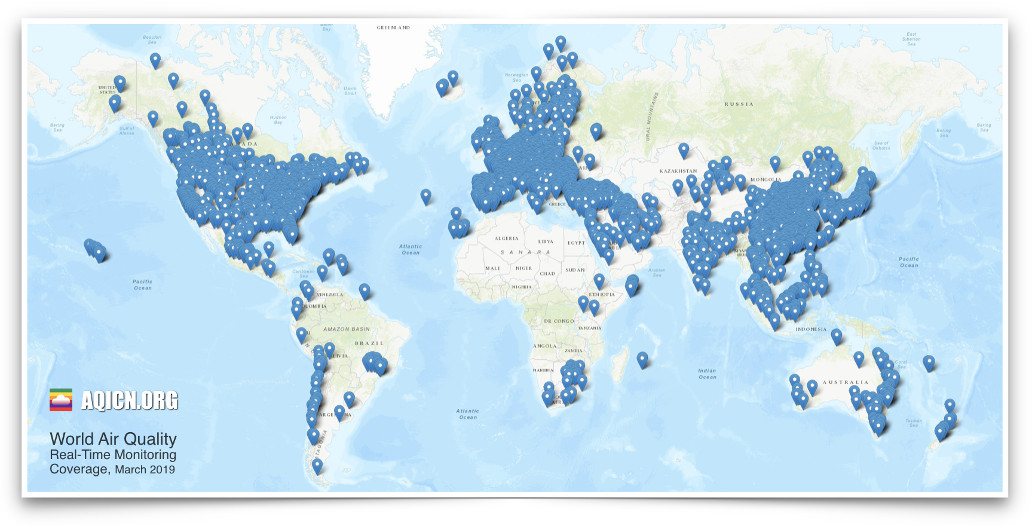
El proyecto Índice Mundial de Calidad del Aire es un proyecto sin fines de lucro iniciado en 2007. Su misión es promover la concienciación sobre la contaminación del aire entre los ciudadanos y proporcionar información unificada y mundial sobre la calidad del aire.
El proyecto proporciona información transparente sobre la calidad del aire para más de 130 países, cubriendo más de 250.000 estaciones de monitoreo de la calidad del aire en 2.000 ciudades importantes, a través de esos dos sitios web: aqicn.org y waqi.info .
El equipo fundador está compuesto por varios colaboradores en el ámbito de las ciencias ambientales, la ingeniería de sistemas, la ciencia de datos y el diseño visual. El equipo se ha ido expandiendo por todo el mundo, con nuevos seguidores clave de China, Singapur, India, Australia y EE. UU.
El proyecto tiene una intención social. Sin embargo, a pesar de su amplio alcance, nunca ha recibido financiación pública. Nuestros ingresos, esencialmente de la publicidad en línea, así como de nuestras estaciones de monitoreo de la calidad del aire GAIA , se utilizan para cubrir la infraestructura de la nube y los costos de alojamiento.
El proyecto busca constantemente el apoyo de más contribuyentes.
Ahora ha recibido contribuciones activas de más de 16205 ciudadanos de 138 países.


